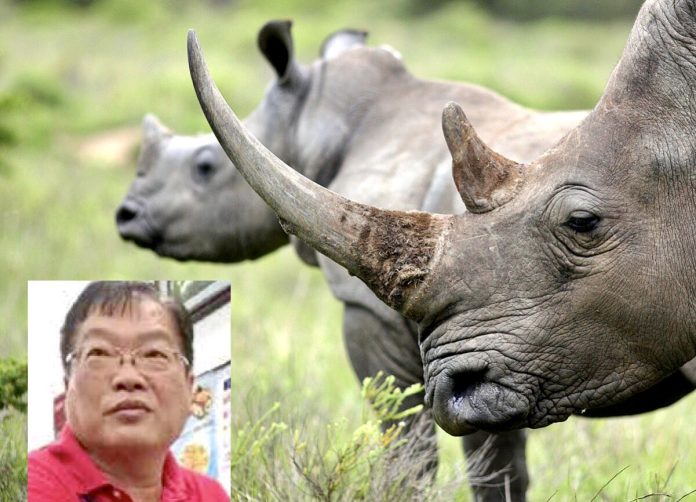
Notorious Wildlife Trafficker Teo Boon Ching Is Facing More Than 20 Years In Prison For Large-Scale Rhino Horn Trafficking
By Lauren Lewis
You can help all animals and our planet by choosing compassion on your plate and in your glass. #GoVeg
RELATED ARTICLES
Banning Cruelty: New Legislation Aims To Ban Octopus Farming In The U.S.
New bipartisan legislation has just been introduced in the U.S. to ban commercial octopus farming and prohibit imports of farmed octopus from foreign countries.
The...
Outrage In Yellowstone! Grizzly Bear Killed By Wildlife Officials & Left With Head & Paws Cut Off
Photo by: Trisha McFarland / Cowboy State Daily
A photo of a dead grizzly bear with its head and paws cut off has caused an...
Inside Florida’s Illegal Horse Meat Trade: Undercover Footage Shows Racehorse Being Shot & Butchered
A heart-wrenching discovery of illegal horse slaughter has emerged, with video footage exposing the tragic killing of a racehorse named 'Funny Biz,' who was...
Popular stories
News
Honoring Animal Activist Regan Russell One Year After She Was Tragically Killed In Ontario By A Slaughterhouse Transport Truck After Giving Water To Pigs
More than 60 vigils and memorials were recently held to mark the one-year anniversary of the tragic death of Canadian animal activist Regan Russell,...
Breaking! Beyond Meat Expands Globally By Opening Its First Manufacturing Facility In China To Accelerate Plant-Based Production & Innovation
Yesterday, Beyond Meat announced the grand opening of its new state-of-the-art manufacturing facility in the Jiaxing Economic & Technological Development Zone near Shanghai.
As previously reported...
Breaking News
Endangered Species Act Protection Sought For Vulnerable Olympic Marmots In Washington
The Center for Biological Diversity filed a petition with the U.S. Fish and Wildlife Service seeking to protect Olympic marmots under the Endangered Species Act. These...




